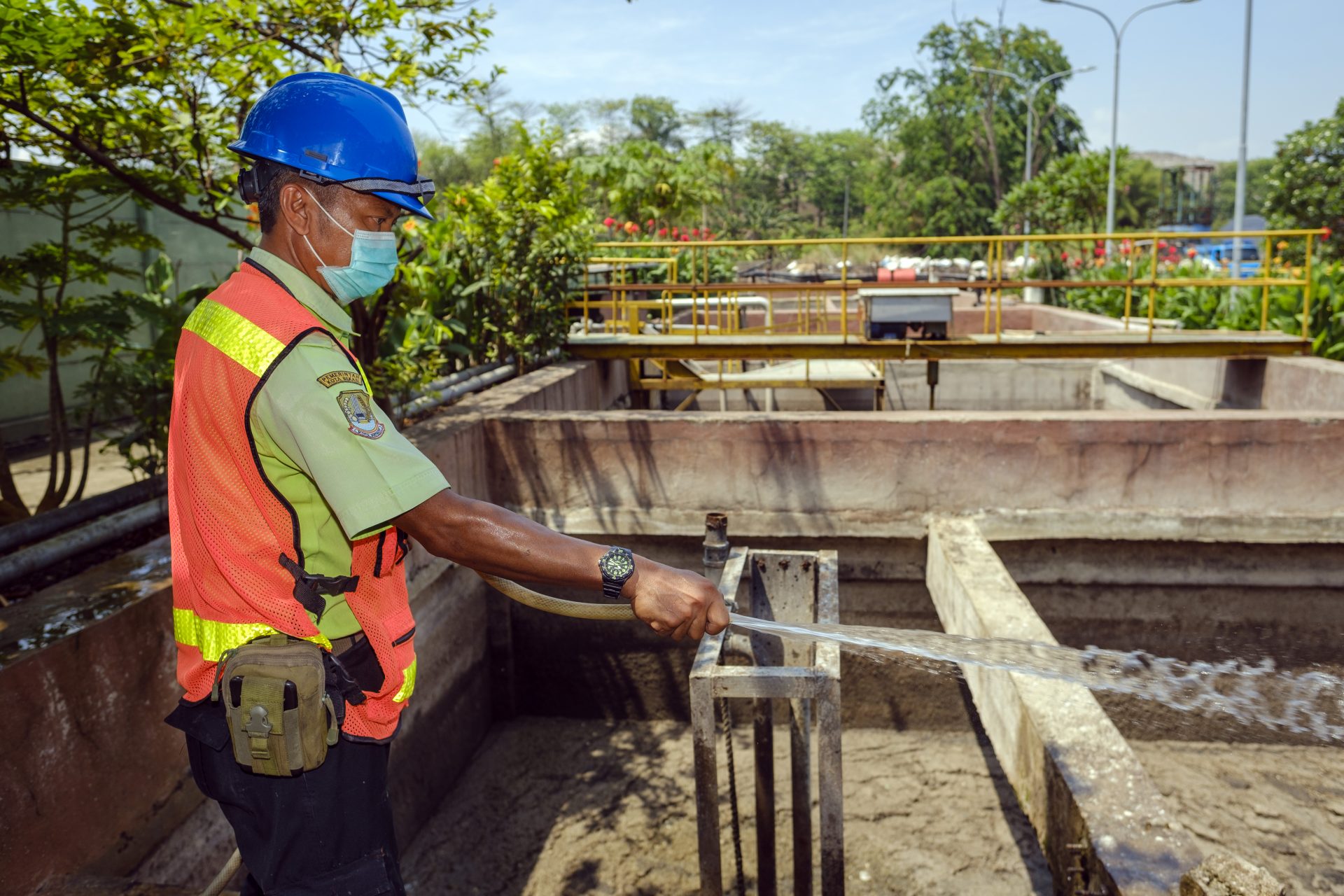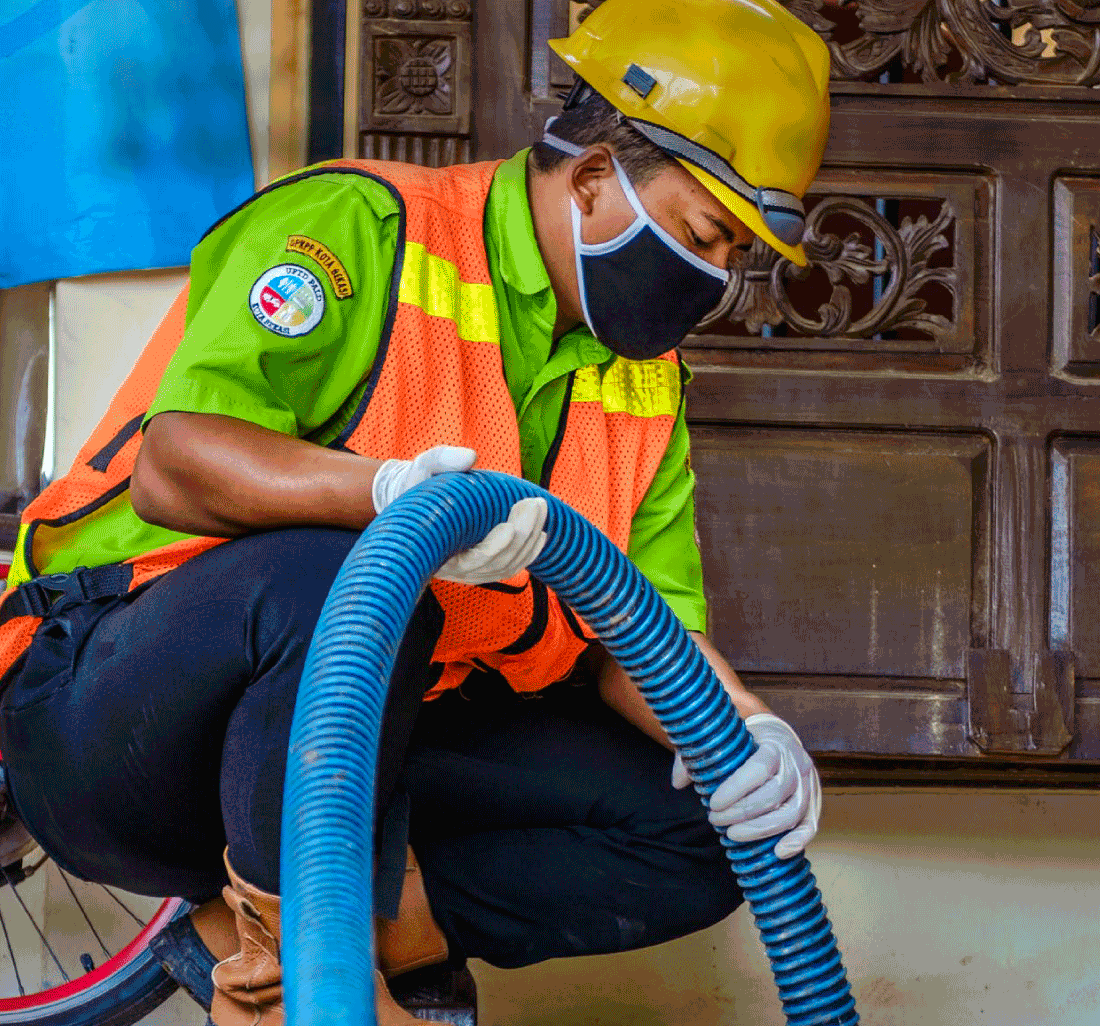- SIWI – Leading expert in water governance
- /
- Latest
- /
- How COVID-19 has affected water, sanitation, and hygiene
How COVID-19 has affected water, sanitation, and hygiene

COVID-19 has posed detrimental impacts on quality, equity, and sustainability of services. Mitigating its negative impacts and using positive effects as leverage can increase the WASH sector’s resilience to future shocks. A study in collaboration with SIWI and UNICEF in 2021 evaluates the socio-economic effects of the pandemic on WASH systems and services.
The provision of water, sanitation, and hygiene (WASH) has been paramount to reducing the spread of COVID-19. Countries have used handwashing as their major response. However, the response has met with detrimental effects on meeting people’s needs. A study conducted in collaboration between SIWI and UNICEF during the first half of 2020, has evaluated the socio-economic effects of the pandemic on WASH systems and services.
The assessment was structured around two different stages of the crisis: i) the immediate effects in the early stages of the pandemic and ii) the indirect secondary effects caused as the crisis evolves into new phases.
In the first stage several countries experienced access to safe WASH services, ruptures in supply chains and interruptions of services, and a decline in the quality of response due to restricted or no movement of utility staff. The pre-pandemic context that countries operated in has undoubtedly contributed to either mitigation or exacerbation of the severity of these effects. The highest impact was felt in countries with weak governance and poor services. Therefore, contextual elements, such as fragile or inadequate services, limited capacities, etc. were integrated in the first stage of the study.
The second stage evaluated the effects caused by the measures taken to control the pandemic. The secondary effects will continually impact, the affordability, safety and continuity of water and sanitation services.
The study has made two major contributions to our understanding of the future of WASH services. First, it identified the negative consequences and emerging threats, especially for the most vulnerable communities. Second, it identified opportunities for transformation and recovery for a safe future for all.
The study concluded with lessons on WASH management and delivery of services, in a challenging and complex context. For example, service providers have promoted access to services by stopping disconnections, and ensured safe return to schools. Despite the progress, much remains to be done. Short-term measures have focused on availability and continuity of services to alleviate the severity of the COVID-19 impacts and prioritize the most vulnerable populations. But the long-term plan is to enhance the WASH sector’s resilience to future shocks.
Highlights of the study have been shared in a session during World Water Week 2021.
Watch the session recording
Global water issues in your inbox
Stay up to date on SIWI's work and related topics from around the world.
Sign up to our newsletterExplore further
This study analyses, assesses, and discusses the socio-economic effects of the pandemic in relation to its impact on WASH systems and services.
Read the full report
Most recent

SIWI Reflections 2025: When knowledge begins to travel
- Water diplomacy
- Water cooperation
- Water and Peace

SIWI Reflections 2025: When water-smart restoration builds change from the ground up
- Freshwater and ecosystems/biodiversity
- Water in landscapes
- Water governance

SIWI Reflections 2025: Shaping SIWI’s future through strategy, collaboration, and renewal
- Water and climate
- Water in landscapes

SIWI-WASH experts join IVL

SIWI Amman hosts Ghana representatives for WASH exposure visit in Jordan

Join us on a journey through 2023



